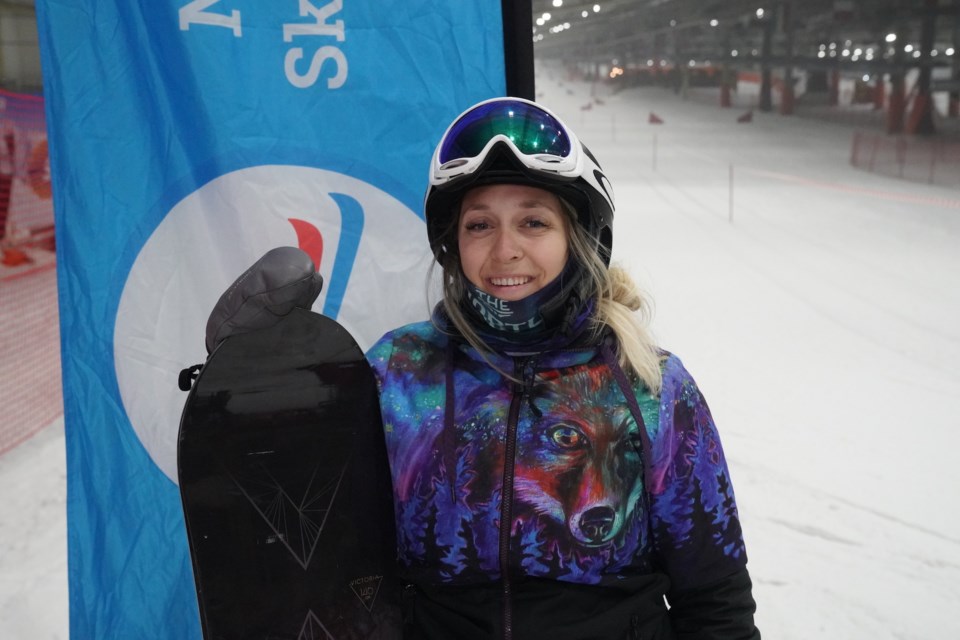Sarah Anne Cormier is happiest when she’s shredding through snow.
“It’s hard to explain how awesome it is, being outside and getting fresh air. Even if you aren’t in a competition, even if you are just racing your friends down the hill,” says Cormier.
Cormier has been participating in snow sports for almost as long as she can remember. As a result of complications from amniotic band syndrome, Cormier was born missing her left leg below the knee and had several finger amputations on both hands. She never thought she stood a chance of making it as a competitive athlete.
But the Collingwood native has shredded her way to success.
Cormier was selected as one of 55 young Canadian athletes from both winter and summer sports to receive the 2019 Fuelling Athletes and Coaching Excellence (FACE) program grant.
Developed by Petro-Canada, the Canadian Olympic Committee and the Canadian Paralympic Committee, the FACE program is intended to support up-and-coming athletes who are striving to represent Canada at the Olympic or Paralympic Games.
Recipients are selected based on potential and the grant is often used for training, equipment and travel expenses.
“This program is amazing. I didn’t even know my name was in the ring, so when I found out I got it I was super stoked,” says Cormier.
The selected athletes and their coaches are awarded a $10,000 grant to help them along their athletic journey ($5,000 is given directly to the athlete and $5,000 to their coach).
“Any financial help is a huge help,” Cormier continues. “I feel like a thank you doesn’t even begin to cover it.”
A graduate of Queen’s University, Cormier now resides full time in Kingston, working as a nurse, which helps supplement her snowboarding expenses. Some money is funded by the government to help cover costs, but athletes are still expected to supply a chunk of the costs associated with competing.
“We get funding, but there’s only so much,” says Cormier. “My coach is amazing. He does the absolute best he can because he doesn’t want us to focus on the financial aspect of travelling to competitions, he just wants us to focus on competing. But financials are a big stressor.”
Later this week, Cormier is off to the Netherlands for her first competition as part of the Team Canada NextGen Parasnowboarding team, which she joined earlier this year. Other competitions scheduled for this season are in Dubai and the Yukon.
Cormier only started para snowboarding competitively last year, but says you can accelerate pretty fast in para sports. Her dream is to one day represent team Canada at the Paralympics.
“There are a lot of little goals I want to accomplish along the way, but that is the big shiny one.”
Cormier says it would be nice to have snowboarding as a full time job, but it’s hard. Especially for para sports, as they are only recently getting the recognition they deserve.
For now, Cormier is focused on taking these next few competitions one at a time.
“I still get anxious before a big race, it’s hard not to be. But there is no feeling like it, it’s like I forget to breathe. You are just so focused on everything, every little thing, but it pushes you to go faster and push your limits,” says Cormier.
As part of her training, Cormier is expected to be on snow at least once a week. You’ll still find her shredding down Waterfall anytime she’s back in Blue Mountain or visiting friends and family.


